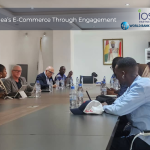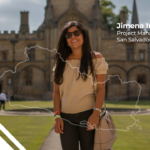We are proud to announce that our affiliate, IOSsoft Inc, has been awarded a contract by the World Bank to provide technical assistance in the development of an electronic invoicing and factoring system for the government of Colombia.
As part of the World Bank Group’s (WBG) Secured Transactions and Collateral Registries (STCR) program in Latin America and the Caribbean, Colombia initiated the first stage in 2013 by adopting a set of legal reforms. For the first time in its history, Colombia implemented a fully digital notice-filing registry and the results were quick to follow. By July 2014, there were more than 57,000 registrations filed through the Colombian Registry that corresponded to loans of more than 5 billion U.S dollars, more than in the past 42 years combined.
As a result of this success, the WBG and IOSsoft will provide additional technical assistance to the government of Colombia in the development of an electronic invoicing and factoring system. More specifically, as part of the phase two of the program, the government has commissioned the creation of an invoice registry (Registro Federal de Factura Electronica, “REFEL”), and invoice discounting platforms that will operate as an extension of it.
Pedro Souss, the managing director of IOSsoft, provides more details on the scope of this engagement. “IOSsoft will provide technical expertise to the government of Colombia in the procurement process for a technology provider that will design the invoice registry (REFEL). Our experts will make sure all the features of REFEL will be compatible with the existing electronic invoicing platform under the Colombian Tax Authority”
The overall goal of the program is to improve access to credit to firms, especially micro, small and medium enterprises (MSME), by further developing and appropriating the legal and institutional frameworks to allow and facilitate the use of movable assets as collateral for loans. “At the end of the day, we hope that this reform will bring economic growth and prosperity to the Colombian people “says Mr. Souss, “and serve as a development model for the neighboring countries”.







